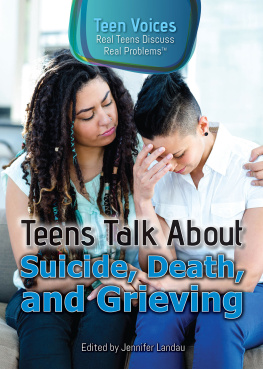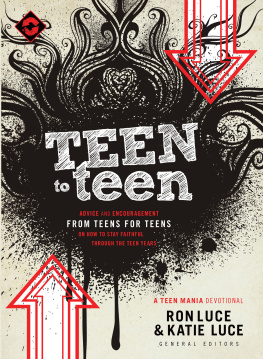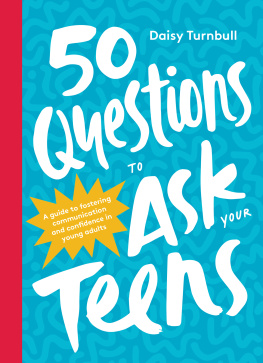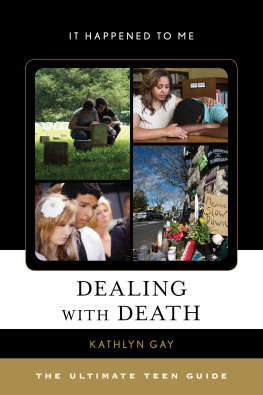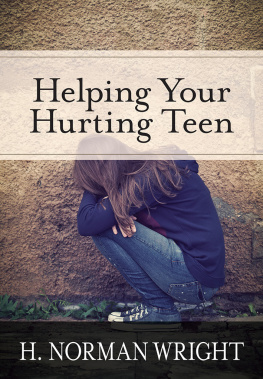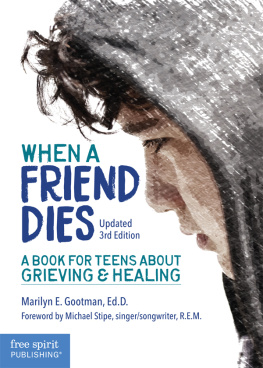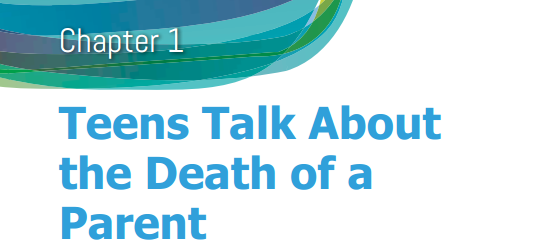Published in 2018 by The Rosen Publishing Group, Inc.
29 East 21st Street, New York, NY 10010
Copyright 2018 by The Rosen Publishing Group, Inc.
First Edition
All rights reserved. No part of this book may be reproduced in any form without permission in writing from the publisher, except by a reviewer.
Library of Congress Cataloging-in-Publication Data
Names: Landau, Jennifer, 1961- editor.
Title: Teens talk about suicide, death, and grieving / edited by Jennifer Landau.
Description: New York, NY : Rosen Publishing Group, Inc., 2018 | Series: Teen voices : real teens discuss real problems | Audience: Grades 7-12. | Includes bibliographical references and index.
Identifiers: LCCN 2017019778| ISBN 9781508176541 (library bound) | ISBN 9781508176626 (pbk.) | ISBN 9781508176381 (6 pack)
Subjects: LCSH: Teenagers and death. | Suicide. | Grief. | Stress in adolescence. Classification: LCC BF724.D43 T44 2018 | DDC 155.9/370835-dc23 LC record available at https://lccn.loc.gov/2017019778
Manufactured in the United States of America
The content in this title has been compiled from The Rosen Publishing Groups Teen Health & Wellness digital platform. Additional original content was provided by Adam Furgang.
Contents
CHAPTER 1:
Teens Talk About the Death of a Parent
CHAPTER 2:
Teens Talk About the Death of a Grandparent
CHAPTER 3:
Teens Talk About the Death of a Friend or Mentor
CHAPTER 4:
Teens Talk About Suicide
T he loss of a family member or friend is never easy. Even under ideal circumstances, the teenage years are a challenging time of transition, physical change, and growth as teenagers develop from youths into adults. Teens must deal with a variety of social and physical changes related to puberty, social attachments, and newoften confusing-feelings. If a family member, friend, or mentor dies during this fragile time, the loss can have a profound and devastating effect on a teen.
However, losing someone close is not an uncommon experience for teenagers. According to data quoted by the Home Nursing Agency, one in five children will experience the death of someone close to them by age eighteen. In some cases, a child or teen may be touched by the death of someone whom he or she did not know well, such as an acquaintance or neighbor. This type of death may not require a lot of emotional adjustment. However, it can take a lot of time to recover from the death of someone close to us.
Dealing with the death of a loved one is one of the most difficult aspects of life. When someone commits suicide, however, feelings of shock, confusion, sadness, anger, and even abandonment can be added to a persons grief. Many complex questions come up about how and why the person chose to end his or her life. Some of the questions may never be fully answered by family or loved ones, making it even more difficult to accept the loss.
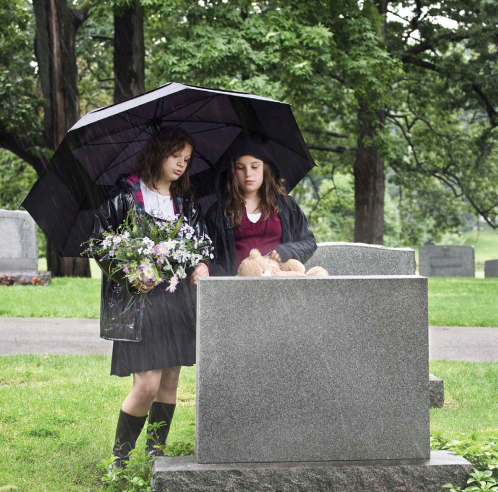
Losing a loved one can be devastating, but a friend or relative can offer support and guidance during this difficult time.

Talking to a counselor or therapist may help a teen overcome loss. Communicating feelings and sharing memories are an important part of the grieving process.
After the loss of a loved one, long periods of grieving and adjustment can take place. Normal daily routines can be upended by feelings of grief and sadness. Difficulty concentrating on chores or schoolwork, trouble sleeping, and even loss of appetite can all occur and are entirely normal. No one way of grieving is correct, but communication with friends, loved ones, and even professional therapists can all be beneficial so that the grieving person can learn to live with the loss and move forward.
Share Your Own Story
The stories you are about to read were submitted by your peers to the Teen Health & Wellness Personal Story Project. Sharing stories is a powerful way to connect with other people. By sharing your story, you can connect with others who are dealing with these challenges. Find more information about how to submit your own story at the end of this resource.
The relationships we form with friends and family around us are an important part of our mental and physical health. According to a 2015 study in the Proceedings of the National Academy of Sciences of the United States of America, strong social ties help to reduce physical problems related to stress. These social ties help a person maintain a healthier weight, blood pressure, and stress hormone levels. The physical benefits of social contact may help a person through hard times, in addition to the emotional benefits these ties may offer.
Although it is impossible to prevent the loss of a loved one, there are healthy ways to deal with that loss so teens can continue onward in life. This resource helps teens take those tentative steps toward the future while acknowledging the pain that comes from the death of someone they loved.
T he traditional role of a parent in a teen's life is to provide stability and care. So when a parent becomes ill or dies, a teen's world can be turned upside down. Teens have various coping mechanisms to deal with the illness and death of a parent. Not all of them are positive, such as turning to drugs and alcohol. Some teens lose sleep, and as a result, their schoolwork and grades suffer. Some students are unable to focus on school because they need to start earning money for the family to help make ends meet.
Younger teens and older teens will grieve for a parent differently. Older teens may be able to talk about their feelings the way an adult would. Younger teens may have a harder time communicating their complex feelings and not know how to cope. They may require more guidance and need to see a therapist, either in a private session or as part of a group. Taking part in new activities with peers may help them get their minds refocused and away from their grief. No matter what positive steps teens take, grief is a process and they will need the time and space to deal with this overwhelming sense of loss.

After the death of a parent, some teens are faced with new financial responsibilities. A teen may need to get a job to pay for college or household necessities.
Adelina's Story
Forever is a long time. It is impossible to measure and far-fetched to imagine. The idea that after death our souls will be eternal is difficult to comprehend. We live our lives with the constant reminder that eventually there will be an end, that our lives and the bodies we live in will finally cease to exist. The second part is believable as we have all lost someone or watched someone else lose someone. We understand that death comes to everyone. Its harder to imagine that life can continue after that stage because no one truly knows.

